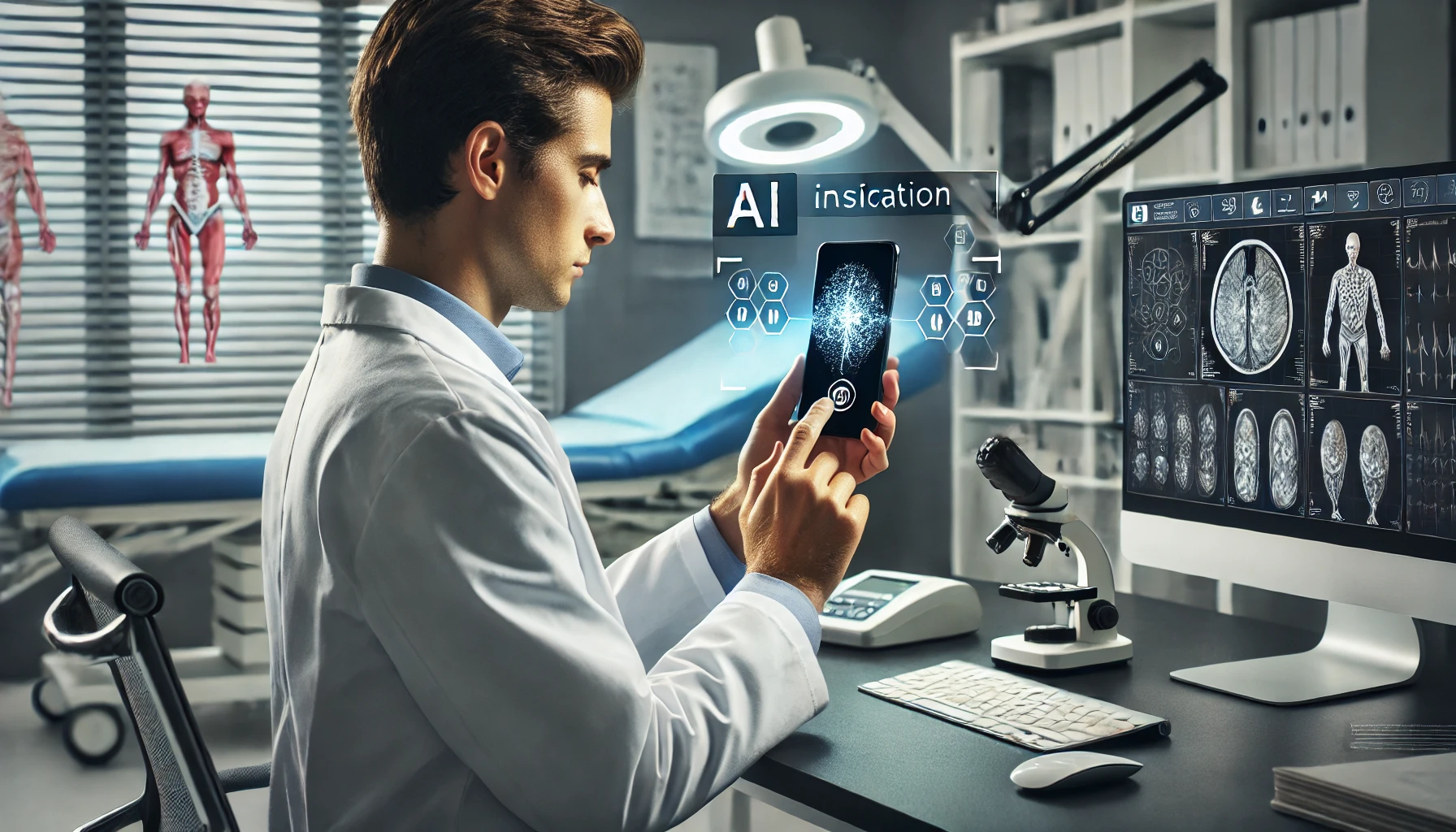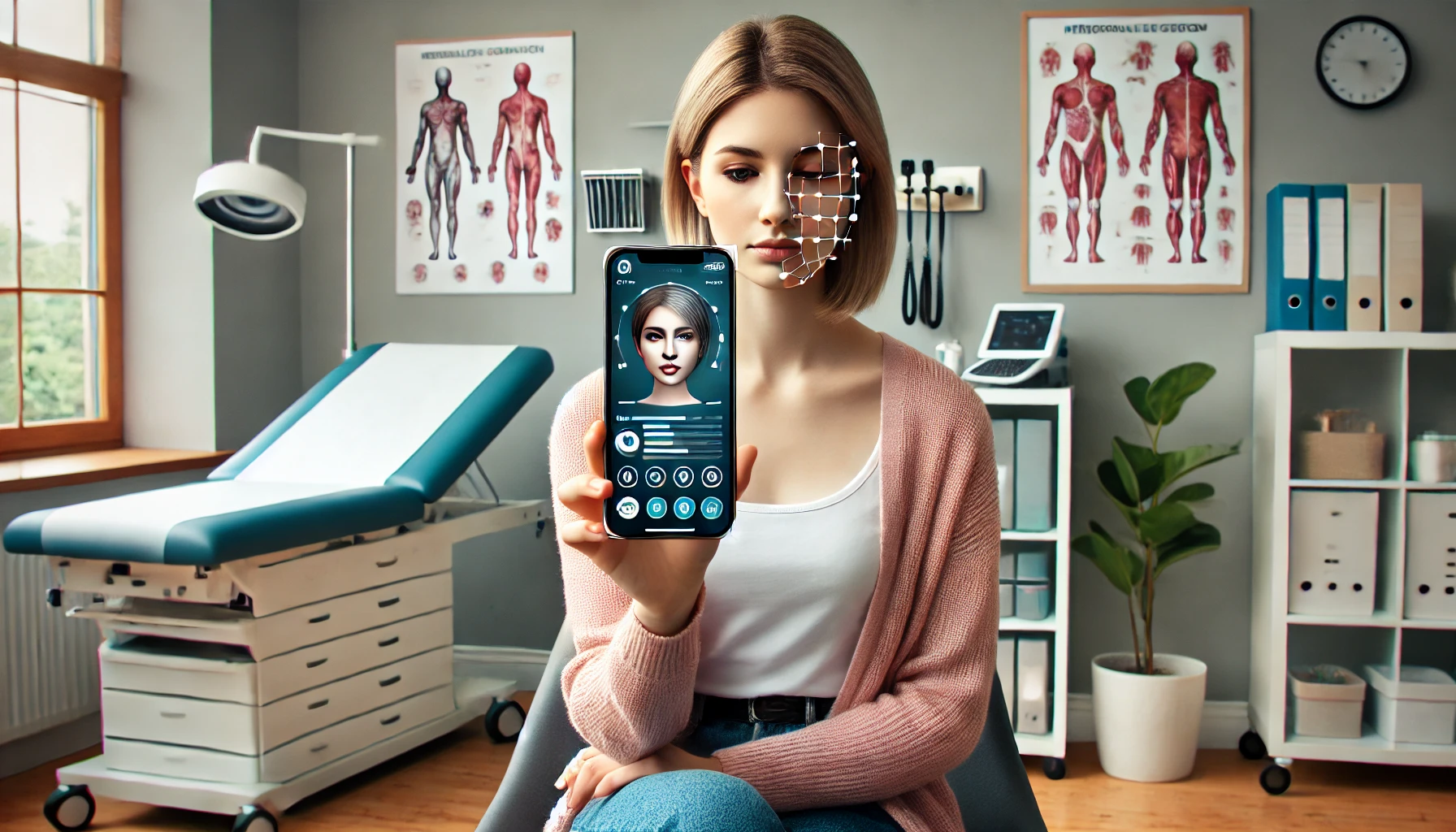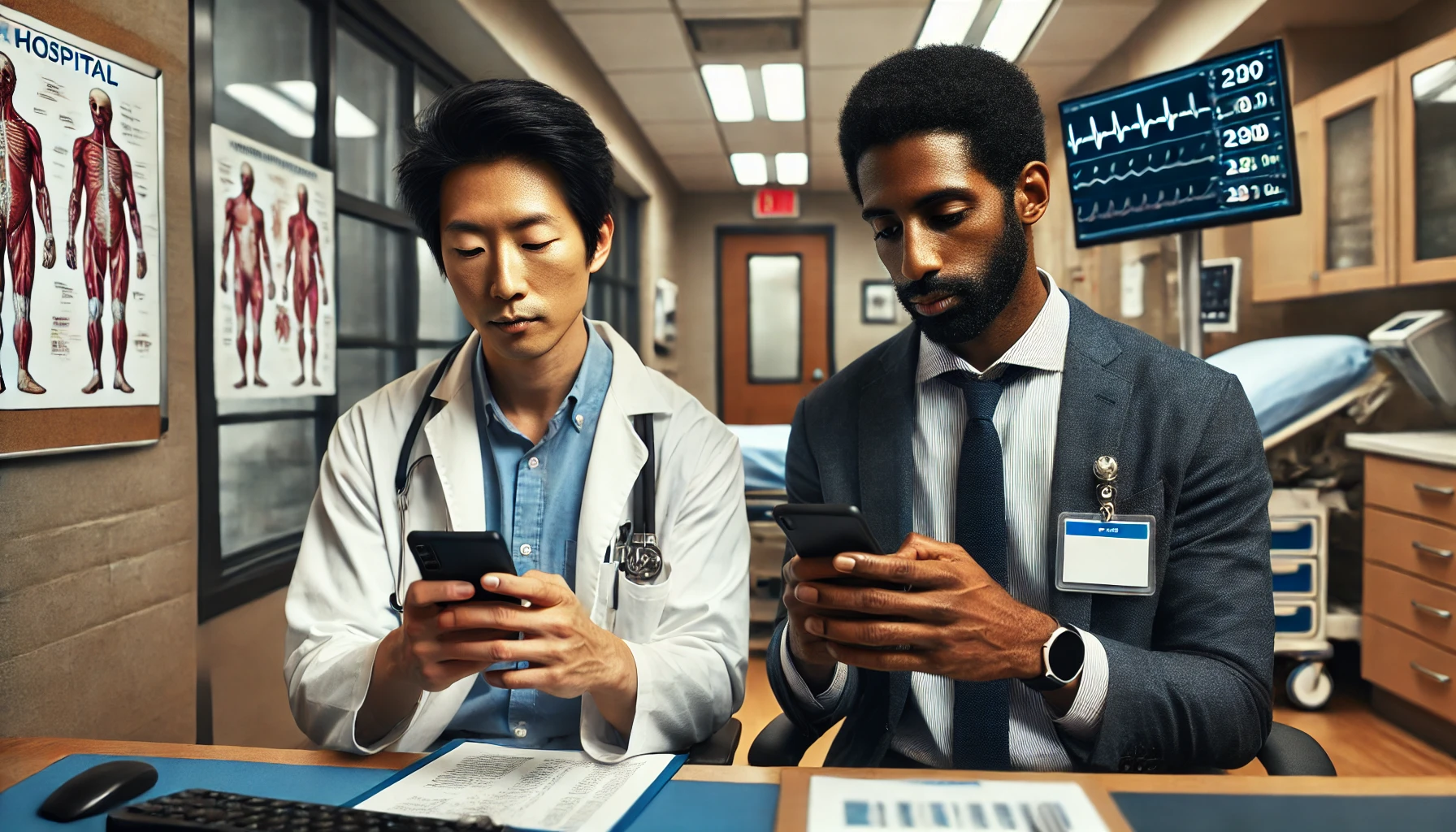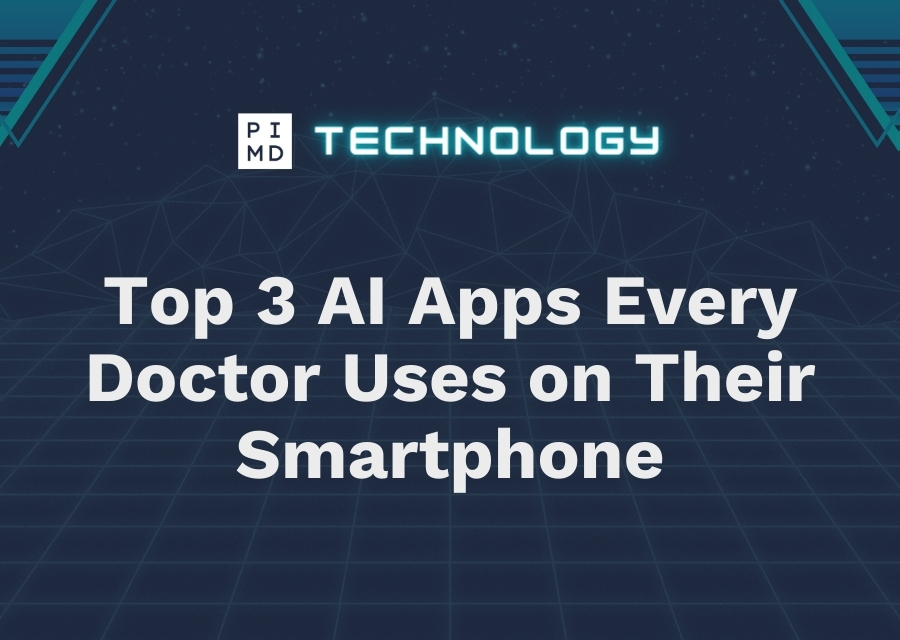The evolution of the humble phone has been nothing short of remarkable. From the clunky black telephones of yesteryears to the sleek and multifunctional touchscreen smartphones we wield today, each iteration has brought us closer to a future where technology seamlessly integrates into our daily lives.
Adding Artificial Intelligence (AI) into the mix, these devices are now poised to become even smarter, especially in the medical domain. But what exactly is AI?
AI, in simple terms, refers to a branch of computer science dedicated to creating machines that can emulate human cognitive functions. In essence, AI attempts to replicate human thinking in machines.
When it comes to healthcare, AI applications harness this technology to automate tasks, enhance medical decision-making, and personalize the doctor’s experience. Just imagine an app that can analyze patient data and recommend treatment options, thereby freeing up the doctor’s time for more intricate cases. Alternatively, envision an app that aids doctors in visualizing a patient’s anatomy through 3D reconstructions, thus boosting diagnostic accuracy.
These are just a snapshot of how AI is set to revolutionize the medical profession.
However, AI isn’t confined to futuristic scenarios. Today, there are already numerous AI-powered apps available on smartphones, offering doctors a plethora of functionalities for both professional and personal use.
Table of Contents
StarryAI

StarryAI isn’t your run-of-the-mill medical app. Instead, it concentrates on artistic creation.
Doctors often require presentations for conferences or patient education. StarryAI enables them to describe a desired image, such as “a healthy heart cell fighting off a virus” or “a calm patient meditating in a garden.”
The app then employs its AI capabilities to generate unique and visually striking images that can elevate presentations and patient engagement.
| Pros: | Creates original, eye-catching visuals for presentations effortlessly. |
| Cons: | The artistic interpretations may not always be medically accurate and might necessitate adjustments. |
| Pricing: | Free trials are accessible, but subscriptions starting at $11.99/month are required for continuous use. |
Uses Beyond Medicine
Let your creative juices flow! StarryAI can be utilized to produce artwork for personal projects, greeting cards, or even unique home décor. Why not try creating a piece depicting your dream vacation or a personalized portrait of your pet?
Lensa AI

Lensa AI offers a suite of photo editing tools powered by AI. Doctors can utilize it to enhance patient photographs for medical records or research projects.
The app also boasts a distinctive feature: creating personalized avatars from portraits. Imagine customizing a patient avatar to explain a complex medical procedure or disease process in a more engaging manner.
| Pros: | Provides advanced photo editing tools and the ability to generate unique avatars for patient education. |
| Cons: | Certain features require in-app purchases. There are also privacy concerns regarding patient data used in avatar creation, which doctors need to be mindful of. |
| Pricing: | Free for basic photo editing with upgrades starting at $2.16 per month for full feature access. |
Uses Beyond Medicine
Breathe new life into your personal photos! Lensa AI’s editing tools can enhance your favorite vacation pictures, family portraits, or even old photographs. The avatar feature can also be used for personal amusement.
Create an avatar of yourself in a fantastical setting or a different artistic style – the perfect addition to your social media profile or a fun conversation starter.
ChatGPT

Of course, no AI list would be complete without ChatGPT, the most widely used AI tool. ChatGPT is an AI-powered chatbot that enables users to engage in natural language conversations.
Doctors can leverage it for research purposes, posing specific medical queries to the AI or requesting summaries of complex medical studies. Additionally, ChatGPT can assist in gathering information from patients through a chatbot interface, potentially enhancing communication and efficiency.
But to make the most of ChatGPT, you need great prompts. You can use our FREE ChatGPT prompt generator to create excellent prompts for any topic. Give it a try!
| Pros: | Provides a convenient way to research medical topics and potentially streamline patient interaction. |
| Cons: | ChatGPT’s information should not be solely relied upon for diagnosis or treatment decisions. Moreover, the accuracy of the chatbot’s responses relies on the quality of data it has been trained on. As always, conduct your due diligence! |
| Pricing: | Free up to version 3.5, while ChatGPT Plus, which is faster and has access to GPT-4, starts at $20/month. |
Exciting news for iPhone users! ChatGPT is slated to be integrated into the next iOS version, meaning you might not need to download it.
For more details, check out our article: Apple Intelligence: Everything About iOS 18 Powered With ChatGPT.
Uses Beyond Medicine
ChatGPT can serve as your personal research assistant! Have burning questions about history, science, or even pop culture? ChatGPT can help you uncover answers and delve into new subjects. Stuck on a creative project? Utilize ChatGPT to brainstorm ideas or generate diverse writing prompts.

Subscribe to receive the 7 Steps you can follow to achieve Financial Freedom
If financial freedom is your goal, there’s no better time to get started than right now.
Unlock actionable steps that you can take every day to fine-tune your goals, discover your interests, and avoid costly mistakes on your financial freedom journey.
Conclusion
AI tools in the medical sector are still in their nascent stages. Nevertheless, the potential for enhancement and innovation is vast. As these technologies advance, we can anticipate more sophisticated applications that will further streamline workflows, augment diagnostics and treatments, and ultimately enhance patient care.
It’s imperative to acknowledge that AI tools have their limitations. They are prone to errors, and responsible development is essential as this technology evolves. Doctors must be discerning users, utilizing AI tools as supplements to their expertise rather than replacements. Remember, always conduct your due diligence!
We’ve highlighted a few ways AI tools are influencing doctors and healthcare. What are your thoughts on these advancements? Have you used a specific AI app for medical purposes? We’d love to hear from you!
Stay tuned for more updates on how AI continues to transform healthcare. Subscribe to our newsletter for exclusive insights, industry trends, and practical tips on leveraging AI in your practice.
You can also visit our AI resource page for a wealth of valuable tools and information. Until next time!
IF YOU WANT MORE CONTENT LIKE THIS, MAKE SURE YOU SUBSCRIBE TO OUR NEWSLETTER TO GET UPDATES ON THE LATEST TRENDS FOR AI, TECH, AND SO MUCH MORE.
Peter Kim, MD is the founder of Passive Income MD, the creator of

